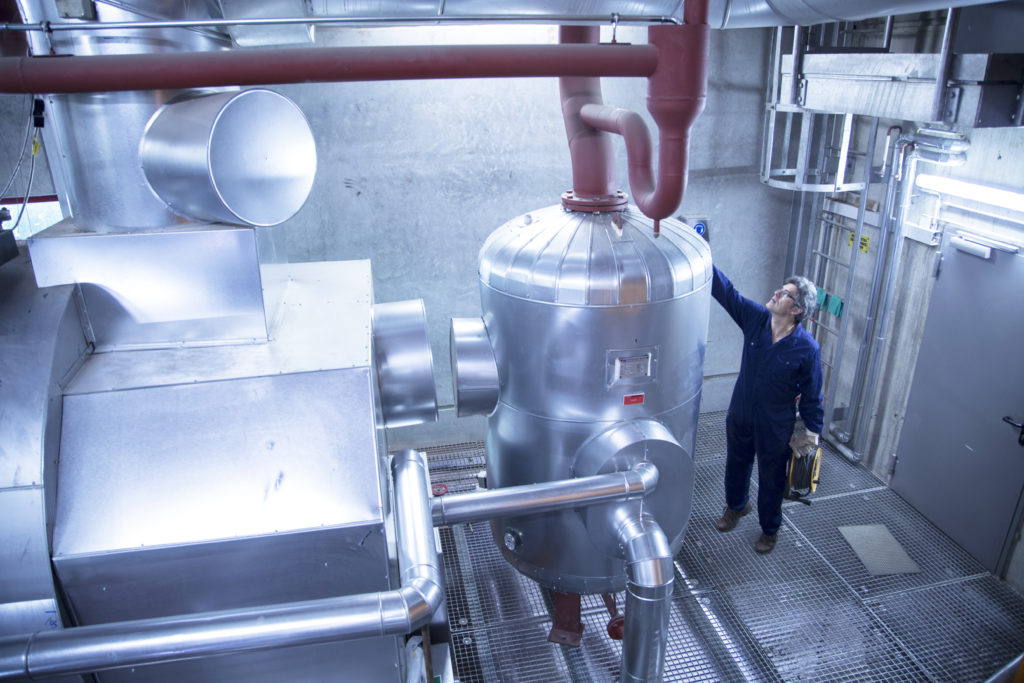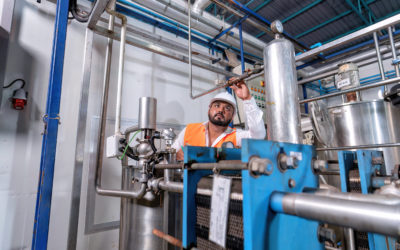Preventing Corrosion in Heat Recovery Boilers with HeatX Surface Treatment
Corrosion in heat recovery boilers is a common and costly issue, especially when burning sulfur-bearing fuels. A power plant faced significant corrosion damage on its preheater tubes due to the condensation of sulfuric acid. This corrosion, if not addressed, can lead to equipment failure, downtime, and expensive repairs. However, advanced surface treatments like HeatX offer a solution to these issues, providing long-lasting protection and enhancing the lifespan of equipment.
The Problem: Corrosion in Preheater Tubes
In this case, the heat recovery boiler at a power plant, which utilized preheater tubes to extract heat from flue gases, experienced significant corrosion after only five years of operation. The tubes, made of carbon steel, were exposed to sulfur-rich gases at temperatures around 160°C, which caused the formation of sulfuric acid vapor.
As the flue gases cooled, the sulfuric acid condensed on the tube surfaces, creating an acidic electrolyte. This resulted in severe external corrosion, primarily at weldments, which became preferential sites for corrosion. The formation of ferrous sulfate (FeSO4) on the tube surfaces confirmed the presence of a corrosive reaction between the steel and the sulfuric environment.
Corrosion Mechanism and Consequences
The key factors contributing to the corrosion in the preheater tubes were:
- Sulfur in Fuel: Sulfur in the fuel oxidized to sulfur dioxide (SO2), which further oxidized to sulfur trioxide (SO3). When moisture was present, SO3 combined with water to form sulfuric acid (H2SO4).
- Condensation: At low surface temperatures (around 120°C), the sulfuric acid vapor condensed on the tube surfaces, forming a highly corrosive acidic layer.
- Localized Corrosion at Weldments: Welded areas became particularly vulnerable to corrosion, leading to localized damage that could compromise the structural integrity of the tubes.
Without intervention, this type of corrosion can lead to significant operational downtime, increased maintenance costs, and even potential system failures due to the degradation of critical components like preheater tubes.
How HeatX Surface Treatment Could Have Helped
HeatX, a cutting-edge surface treatment developed by Oceanit, could have played a critical role in preventing the corrosion observed in this case. Unlike traditional coatings, HeatX is a nanocomposite surface treatment designed to protect against high-temperature corrosion and fouling. Here’s how it could have mitigated the damage:
- Barrier Against Sulfuric Acid: HeatX creates an ultra-thin yet highly effective barrier between the metal surface and the corrosive environment. By applying HeatX to the preheater tubes, the sulfuric acid vapor would have been unable to penetrate the surface, preventing the formation of ferrous sulfate and halting the corrosion process.
- Resistant to High Temperatures: HeatX is engineered to withstand the high-temperature environments typical of heat recovery boilers. Even at temperatures where sulfuric acid forms, the surface treatment remains stable, ensuring long-lasting protection.
- Enhanced Weld Protection: Weldments are often vulnerable to localized corrosion due to differences in material composition and microstructure. HeatX’s ability to form a seamless protective layer over both the base metal and weld areas would have minimized the risk of corrosion at these critical points.
- Low Maintenance and Durability: One of the key benefits of HeatX is its durability, even in harsh environments. In this case, the power plant could have extended the operational life of its preheater tubes, reducing the need for frequent maintenance or early replacement of corroded components.
Conclusion: A Preventative Approach with HeatX
The corrosion damage observed in the power plant’s preheater tubes could have been significantly reduced, or even prevented, with the application of HeatX. By acting as a durable, high-temperature resistant surface treatment, HeatX provides a reliable solution to corrosion caused by sulfur-bearing fuels and acidic condensation.
Incorporating advanced surface treatments like HeatX into heat recovery boilers and other industrial systems can prevent costly corrosion-related failures, enhance the efficiency of heat transfer, and ultimately prolong the service life of critical equipment. For power plants and industrial operations that rely on sulfur-rich fuels, investing in HeatX is a proactive measure that offers substantial long-term benefits. Learn more about HeatX from our experts.



